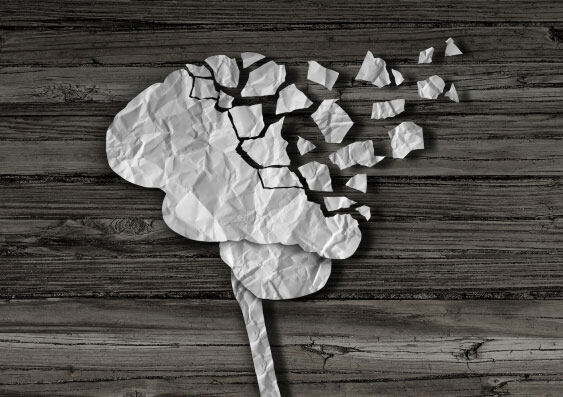Experiencing three or more traumatic brain injuries was linked with lower cognitive function later in life.


Repeated concussions are linked to worse brain function in later life, according to new research.
The findings, published in the Journal of Neurotrauma, show people who reported experiencing three or more lifetime concussions had worse cognitive function at baseline than those with no concussion history. The UK-based research, conducted by UNSW Sydney, the University of Oxford and the University of Exeter, analysed data of more than 15,000 study participants – the largest study to explore the cognitive effects of concussion, or traumatic brain injury (TBI), to date.
Participants in the study who reported just three episodes of even a mild concussion had significantly worse concentration and ability to complete complex tasks. Those with four or more mild concussion episodes also showed worse processing speed and working memory. Each additional concussion correlated with progressively worse cognitive deficits.
Furthermore, the study found just one moderate-to-severe concussion was associated with worse concentration, ability to complete complex tasks and processing speed.
“Our findings suggest concussions are associated in the long-term with a fixed chronic deficit that seems to increase with each additional TBI,” says Dr Matthew Lennon MD, a PhD Candidate from the Centre for Healthy Brain Ageing (CHeBA) at UNSW Medicine & Health and lead author of the study.
Understanding the long-term impact of head injuries
For the study, the research team analysed data from 15,764 participants of the online PROTECT study – an ongoing long-term research project seeking to better understand how the brain ages and why people develop dementia.
Participants, all aged 50 to 90 years old and based in the UK, were asked to report the severity and frequency of concussions they had experienced throughout their lives using a detailed questionnaire and completed annual, computerised tests over four years to measure changes in cognitive function over time. Individuals were excluded from the study if they had a diagnosis of dementia at baseline.
“We know that head injuries are a major risk factor for dementia, and this large-scale study gives the greatest detail to date on a stark finding – the more times you injure your brain in life, the worse your brain function could be as you age,” says Dr Vanessa Raymont, senior author of the study from the University of Oxford.


The researchers say those with a history of concussions should be wary of the potential dangers of continuing activities that may place them at risk of further head trauma. Photo: Shutterstock.
Risk management and cognitive rehabilitation
“As our population ages, we urgently need new ways to empower people to live healthier lives in later life,” says Helen Brooker, a study co-author from the University of Exeter.
“We’re learning that life events that might seem insignificant, like experiencing a mild concussion, can have an impact on the brain. Our findings indicate that cognitive rehabilitation should focus on key functions such as concentration span and completion of complex tasks, which we found to be especially susceptible to long-term damage.”
People with a history of concussions should be wary of the potential dangers of continuing activities that may place them at risk of further head trauma, like contact sports and dangerous work.
“Our research indicates that people who have experienced three or more even mild episodes of concussion should be counselled on whether to continue high-risk activities. We should also encourage organisations operating in areas where head impact is more likely to consider how they can protect their athletes or employees,” Dr Raymont says.
Limitations of the study
Within the cohort, 6,227 (39.5 per cent) reported at least one concussion, and 510 (3.2 per cent) at least one moderate-severe concussion. On average, participants reported suffering their last head injury an average of 29 years prior to the study and their first head injury an average of 39 years earlier.
“The retrospective design of the study, with elderly participants often recalling details of events over three decades in the past, may have affected the reporting of head injuries, even while using a well-validated screening tool,” Dr Lennon says.
The researchers also acknowledge that some unmeasured covariates known to affect cognitive scores may have also influenced the study results.
“We were able to control for the critical confounding variables including age, sex, education, smoking and vascular risk, but unmeasured confounders such as socioeconomic status may explain some of the variation between groups,” Dr Lennon says.



































